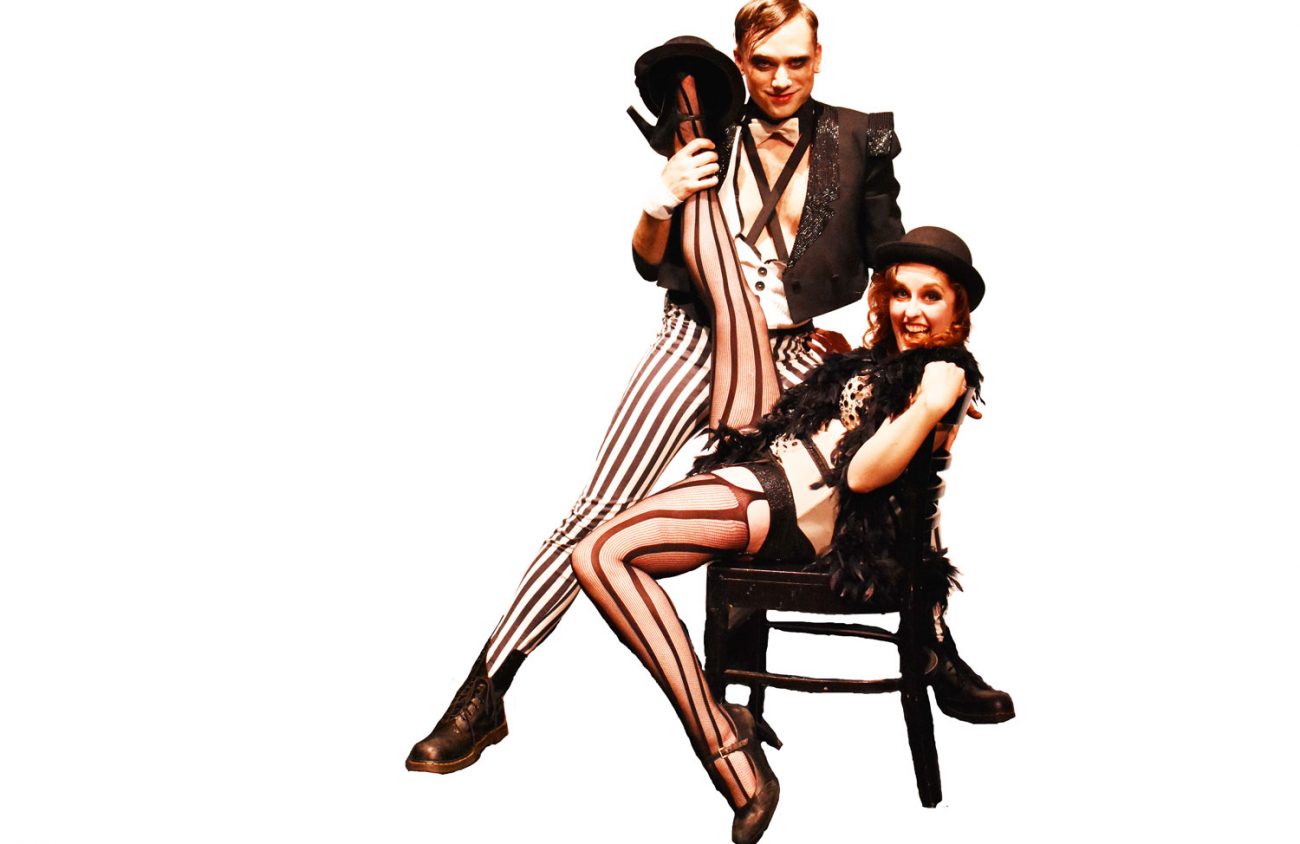Even if Actors Cabaret of Eugene’s current production of Cabaret were a drop-dead disaster, I’d still recommend it wholeheartedly. This 1966 hit Broadway show, based on Christopher Isherwood’s novel Goodbye to Berlin, is so timely it’s chilling. Dark and dastardly, the musical captures, with wit, humor and loathing, the malevolence that fascism bleeds into every corner of life, until not even the chorus line is safe.
Set to music by John Kander with lyrics by Fred Ebb, the action of Cabaret centers on the seedy, saucy Kit Kat Club, whose constellation of sexed-up outcasts and starving artists is immersed in the lunar dramas of Berlin nightlife. And beneath all this sequined grab-ass lurks the rising threat of Nazism — a threat that slowly but ineluctably overwhelms the club, severing the bonds that so tenuously held it together.
Cabaret is wry, witty, viciously fun and bitterly tragic, with fantastic music and sharp choreography, and, as mentioned, even a crappy version of it would offer a shrewd comment on where we’re at right now. Beyond, however, having the admirable courage to mount this show, ACE completely nails it. They turn Cabaret into something truly remarkable, a cautionary fable that detonates with the realpolitik of right now.
For years, producer Jim Roberts and director Joe Zingo have been staging solid crowd-pleasers, by turns playful and nostalgic, but here they really take off the gloves. A sense of outrage drives this production, and Zingo brings all his artistry and experience to bear, creating a spectacle that is both breathtaking and devastating. The outrage is palpable.
The sets are simple and effective, and the song-and-dance numbers meticulously choreographed, but it’s the cast that really makes this show an event. Front and center is Anthony Krall as the Kit Kat Club’s gender-bending Emcee, a role he inhabits with an expert combination of melancholy, sensuality and besieged joie de vivre; his performance is painfully beautiful, a portrait of an outraged artist’s bearing up under the threat of extinction.
Krall doesn’t so much steal the show as elevate it, and the cast surrounding him is equally ascendant: Jennifer Parks, always so good, is enticingly vampish as the English cabaret performer Sally Bowles, and Donovan Seitzinger is strong as her love interest, the busted-out novelist Cliff Bradshaw.
In one of the show’s devilish subplots, Michael P. Watkins and Erica Jean are wonderful as the German Jew Herr Schultz and his landlady Fraulein Schneider, whose burgeoning romance is poisoned by Ernst Ludwig (Cody Mendonca), who reveals himself to be a Nazi sympathizer.
The hothouse of a Berlin nightclub in the early 1930s looks a bit too familiar right now, what with its play of sexual politics and ethnic identity at odds with a nativist zeal for purity and purging, all of it cut through with divisive fear and pervasive loathing. Part of the musical’s fascination rests in watching how various characters respond to the undeniable surge of Nazi sentiment, with alternating denial, confusion, terror, apathy and capitulation.
In Cabaret, the show must go on, and it can’t go on, and this impossible tension fills the musical with an atmosphere of foreboding that is tempered only by the sad fandango of performers waiting, futilely, for the final curtain.
That ACE has chosen this moment to stage this show is admirable and, ironically perhaps, cause for celebration. Despite the dark subject matter of Cabaret, its presentation is an act of artistic defiance, and a moment of moral reckoning from which we dare not look away.
Cabaret plays through May 27 at Actors Cabaret of Eugene; $16-$42.95, tickets at actorscabaret.org or 541-683-4368.
